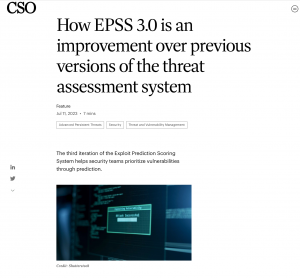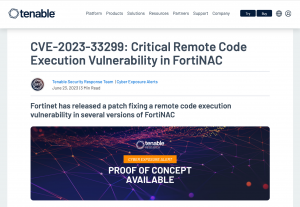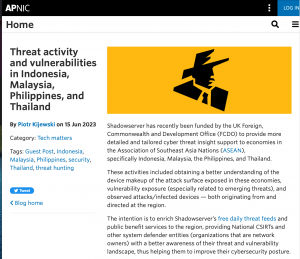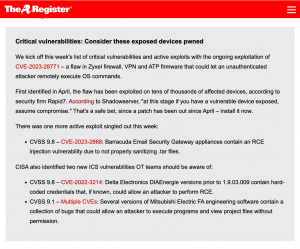Rockwell Automation Warns of Critical Bug in ControlLogix Modules
Rockwell Automation has released patches for a critical remote code execution vulnerability that affects many versions of its communications modules, and is warning customers that an exploit for the bug exists, although no exploitation has been observed yet. Rockwell discovered the vulnerability internally, and reported it to the Cybersecurity and Infrastructure Security Agency, which published an advisory on Wednesday. There is a separate bug (CVE-2023-3596) identifier for the vulnerability in the 1756-EN4* series of products, since exploitation results in a denial of service rather than RCE. Rockwell said that it had discovered and analyzed an exploit for the bug, which it attributed to an unnamed APT actor. The affected modules are used in critical manufacturing settings, and Rockwell has released firmware updates for all of the modules. The Shadowserver Foundation, which tracks exploit activity and vulnerabilities, identified about 107 vulnerable modules exposed to the Internet on Thursday. One of the interesting aspects of this vulnerability is that researchers were able to identify the exploit and discover that an APT actor had also discovered the bug, before the actor actually used the exploit. Organizations running affected Rockwell ControlLogix modules should install the updated firmware as soon as possible.











